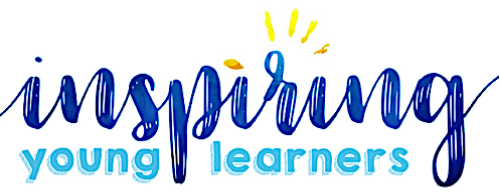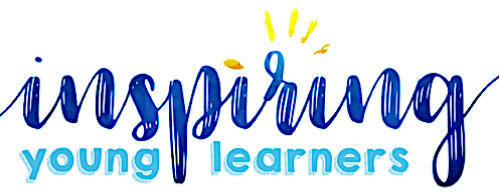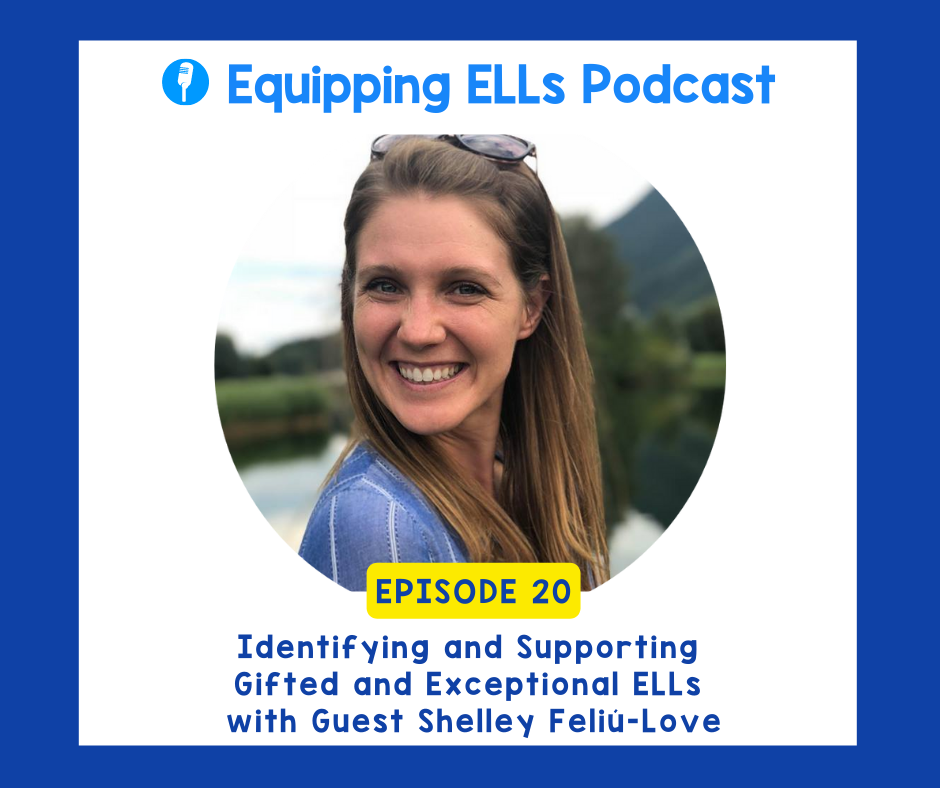Click below to hear about identifying and supporting gifted and exceptional ELLs:
“There’s a slight bias towards the Asian population being more identified [as gifted]. It goes back to being open from the very start and saying, ‘Hey, all of my students could be these high achieving gifted students, but I need to look at all of them with that attitude and set the bar high so they can show me what they can do.’” -Shelley Feliú-Love
Today’s guest is one of the most incredible educators that I’ve ever met. I’ve had the opportunity to work with her, and I invited her to come on the show today to talk about how to identify and support the gifted and talented ELL students in your classroom, even if they’re not proficient in English.
Shelley grew up exploring the world with her family. By the time she finished her Elementary Education and Spanish Language degrees at Auburn University, she had traveled to six continents. Before arriving in Panama, she taught for five years in the state of Georgia where she got her Gifted teaching endorsement.
She moved to Panama to challenge herself both personally and professionally, striving to continue to grow as an educator. She later went on to get a master’s degree in international education administration through Endicott College, studying both online and in Switzerland during the summer.
Shelley aspires to challenge each student to reach his or her full potential. She realizes that each student has different strengths and abilities; therefore, she seeks to build upon those. She particularly enjoys inspiring her students to think creatively when they encounter challenges in school and in their lives.
While not occupied with work, she enjoys running, traveling, photography, exploring outdoors, spending time with friends and family, and reading. Her greatest joy and challenge along with her husband is raising a bilingual “Panagringa” who is almost a year old!
Topics discussed in this episode:
- Why having an open mindset that all of your students can learn is the first key to being able to identify a gifted student
- Tips for assessing academic achievement and cognitive ability in the student’s mother tongue
- Other things to consider when identifying gifted students
- How to avoid bias when it comes to identifying students who may be gifted
- Tips for setting high expectations and challenging all of our language learners
Connect with Shelley:
Related resources:
- Join the Equipping ELLs Membership
- Check out the ELL Strategy Academy
- Shop TpT resources that help with supporting your ELLs
Related episodes and blog posts:
- Episode 2, 3 Step Framework for Supporting ELLs
- An Easy 3-Step Framework to Build a Strong Foundation for Teaching ELLs
- Episode 4, Advocating for Multilingual Learners with Brooke Boutwell
Connect with Beth:
- Join the Facebook group: Inspiring Young Learners Engage!
- Follow her on Instagram @inspiringyounglearners.
More about Equipping ELLs:
We all know that teaching isn’t easy, but it doesn’t have to be this hard. Equipping ELLs is a podcast for both ESL specialists and homeroom teachers who are looking for effective and engaging ways to support their English Language Learners without adding to their endless to-do list. Tune in each week to hear tips, strategies, and inspirational stories that will empower you to better reach your ELL students, equip them with life-long skills, and strengthen relationships with colleagues and parents.
Your host, Beth Vaucher, is the founder of Inspiring Young Learners. She is an ESL certified homeroom teacher with over 10 years of experience teaching in the US and internationally. Her background of M.Ed in ESL and Curriculum and Instruction combined with her experience has led her to develop a bestselling newcomer curriculum that has sold in over 90 countries around the globe. She brings a different perspective to teaching ELLs from her years teaching and living abroad and working with ELLs from around the world. You will walk away from each episode with the ideas and tools you need to transform your experience as a teacher and cultivate a thriving and welcoming environment for your ELL students.



